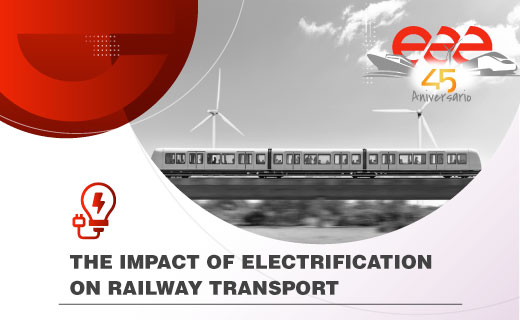The electrification of railway transport is transforming the global mobility landscape, driving a transition to more sustainable and environmentally friendly trains. This transition is essential to address climate change and progress towards a low-carbon economy.
Electric trains eliminate direct exhaust emissions, thus helping to reduce the transport sector’s carbon footprint. This is a significant contribution to the fight against climate change as it reduces greenhouse gas emissions.
As well as being more environmentally friendly, electric trains are more energy efficient than diesel trains. This results in lower fuel consumption and greater operational efficiency. By harnessing renewable energy sources and energy recovery technologies, electric railway systems can maximise resource use and minimise environmental impact.
The energy efficiency of electric trains can also generate significant savings in terms of long-term operating costs. Although initial electrification may require a significant investment, the elimination of fuel and maintenance costs associated with diesel trains can result in a favourable return on investment and increased profitability for railway operators.
In addition to the economic benefits, electrification of railway transport contributes to improving air quality in urban areas by reducing emissions of air pollutants and harmful gases. By providing a clean and efficient alternative to road transport, electric trains help reduce air pollution and promote healthier and more liveable cities for inhabitants.
In short, the electrification of railway transport offers a number of significant benefits: From reducing emissions and operating costs to improving air quality and promoting a low carbon economy. As a leader in sustainable railway solutions, Triple E is committed to driving this transition to a cleaner and more resilient future for railway transport worldwide.










